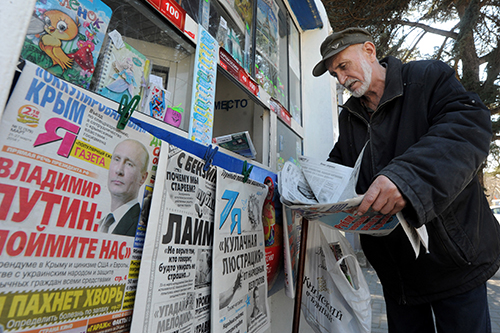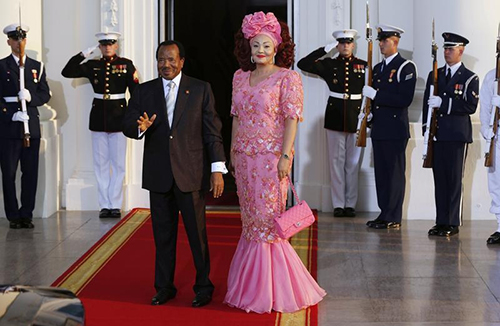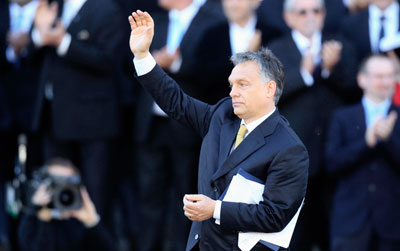Authorities close Al-Baghdadia TV in Iraq, force staff out of channel’s offices
New York, March 18, 2016–The Committee to Protect Journalists calls on Iraqi authorities to restore the broadcasting license of the pro-Sunni satellite channel Al-Baghdadia TV, and to allow the channel to operate freely in Iraq.
Regional court orders Venezuela to reinstate RCTV on the air
New York, September 8, 2015–A recent ruling by the Inter-American Court of Human Rights ordering Venezuela to reinstate the broadcasting license of Radio Caracas Television, or RCTV, sets an important precedent for freedom of expression in the hemisphere, the Committee to Protect Journalists said today. RCTV has been confined to cable and satellite since being…

Mission Journal: Crimea’s journalists in exile as Russia muzzles free press
“First they asked if my parents had any guns or drugs in the apartment, then they showed my picture to my mother and asked her to identify me,” Anna Andriyevskaya said. The Crimean journalist, who is living in exile in Kiev, was describing a raid on her parents’ home by Russian FSB agents. “Any other…

How patriotism with a Cold War tinge is damaging Crimea’s press
“You should move to Kiev,” I was trying to persuade a friend of mine to leave Crimea. I first met him at the time when cassettes were used in voice recorders, there were no e-mail addresses on business cards, and people preferred to make acquaintances in bars, not online. He asked me not to make…
CPJ calls on Ukraine to not revoke Inter broadcasting license
New York, May 29, 2015–The Committee to Protect Journalists calls on Ukrainian authorities to allow national television channel Inter to continue broadcasting freely and to investigate why its signal has been jammed. Parliamentary criticism of the station has led the National Television and Radio Broadcasting Council of Ukraine to conduct a review of Inter’s license,…

In Cameroon, press struggles with financial and official constraints
On March 16, Cameroon’s Minister of Communication, Issa Tchiroma Bakari, denounced French online news outlet Le Monde as unprofessional at a press conference after it reported on allegations that President Paul Biya was in hospital in Geneva. The incident is symbolic of the growing problem in Cameroon, which has a growing but poorly funded independent…
In Russia, media regulator uses warnings to restrict the press
In January, Russia’s state media regulator Roskomnadzor issued warnings to six news outlets that published cartoons from French satirical weekly Charlie Hebdo. Roskomnadzor said the cartoons were “insulting the religious feelings of Muslims and inciting religious hatred,” and that the outlets had broken laws on media and extremism, Russian news agency Tass reported.

Hungary’s independent media struggle against economic pressure, intimidation
“This is a new wave of clampdowns by the government–they want to have another four-year term with even less critical media than before,” said Szabolcs, a 21-year-old economics student, one of thousands of people who marched in the streets of Budapest in June, chanting “Free Country, Free Press!” The demonstrations were in reaction to several…
